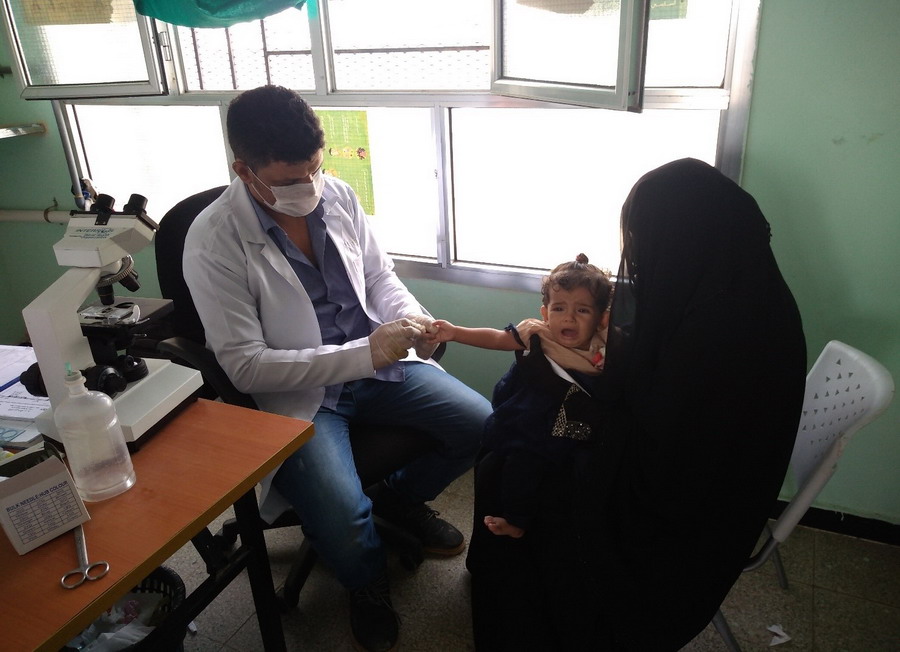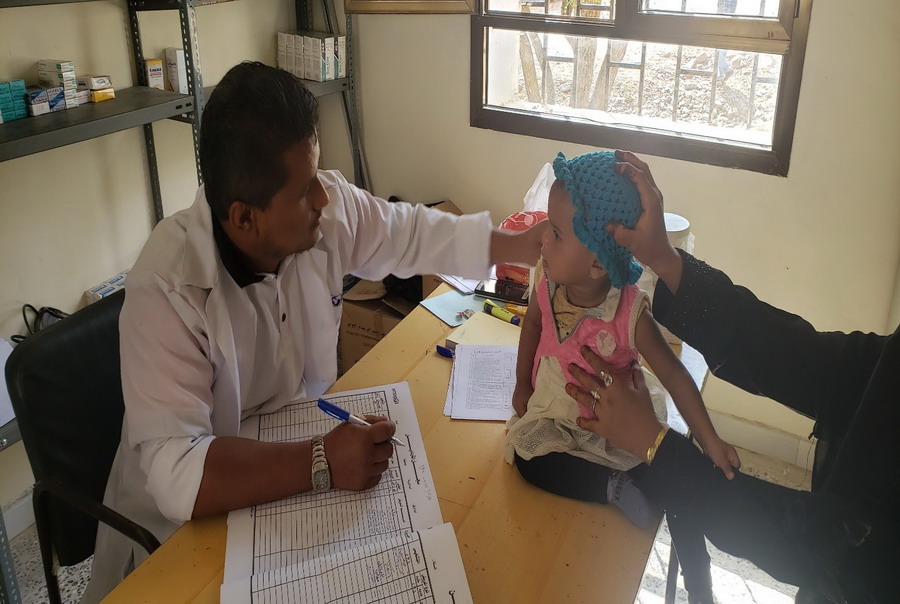
With the support of USAID, WHO and INTERSOS have been working together to provide urgent assistance to the population in need of primary and secondary health and nutrition services in Lahj governorate.
15 March 2021 – Driven by years of conflict, the human-made crisis in Yemen has resulted in a near collapse of an already fragile public infrastructure, further exacerbating the population’s humanitarian needs with each year of the conflict.
Health services are not an exception as nearly 17.9 million people needed health care services in 2020, and the situation is not expected to improve in 2021.
At the same time, the health system has been devastated, with only half of the health facilities fully or partially functioning and still lacking basic requirements such as fuel, water, essential medical supplies, and qualified health staff.
With the support of USAID, the World Health Organization (WHO) and INTERSOS have been working together since January 2020 to provide urgent assistance to the population in need of primary and secondary health and nutrition services. The joint project included supporting 11 health facilities across the districts of Tuban, Radfan, Al-Milah, Al-Maqatira and Al-Mudaraba wa Al-Ara in Lahj governorate and reinforcing outreach and referral mechanisms with a network of community health volunteers.
Doa’a, a 30-year-old woman from Al-Milah district, was grazing sheep when she stumbled and fell on a sharp rusty iron bar. She was rushed to Dar Shiban Health (Al-Milah district) for emergency care. “We received Doa’a in bad condition, but the treatment was provided timely to prevent secondary infection. She was kept under observation for one week until she recovered,” said Abdulmontaser Moqbal, a medical doctor at the centre.
The partnership also aims at reducing morbidity and mortality of the most vulnerable conflict-affected populations. It focuses on children under 5 and pregnant and lactating women in the targeted districts by providing trauma emergency and surgical services and primary health services, including outpatient consultations, immunization, and basic clinical management.
 The partnership aims to reduce morbidity and mortality among the most vulnerable conflict-affected populations focusing on children under 5 and pregnant and lactating women in targeted districts
The partnership aims to reduce morbidity and mortality among the most vulnerable conflict-affected populations focusing on children under 5 and pregnant and lactating women in targeted districts
Marwan, a 7-year-old boy from Al-Milah district, was admitted to Dar Shiban health centre because of high fever, chest pain, respiratory difficulties, and severe nausea. The medical team identified a chest infection and provided the needed medication, including antibiotics, oxygen support, and intravenous fluids until Marwan’s condition stabilized. Following discharge, he was put under follow up visits until his full recovery.
Abdullah, a 35-year-old man from Tuban district, had an accident with his motorbike. When he was brought to the health unit at Dar Al-Manasrah health unit, he suffered from an arm fracture and multiple wounds. “The pain I felt because of the fracture was unbearable, but the medication provided by the medical assistant relieved the pain,” said Abdullah.
“Having access to health services is a luxury in our conflict-affected country. We thank the humanitarian organizations that provided health services and essential medication,” Abdullah concluded.


